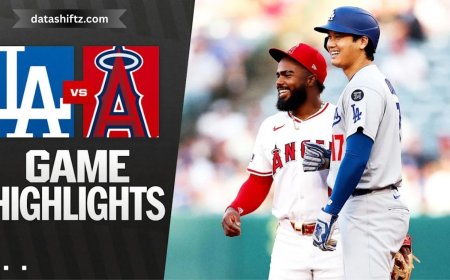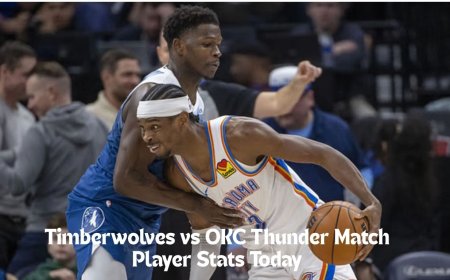Major League Baseball (MLB): America's Pastime in the Modern Era
Introduction
Major League Baseball (MLB) is not just a sports league—it’s a central thread in the fabric of American culture and history. Founded in the 19th century, MLB has evolved into a multi-billion-dollar global industry, captivating fans with its timeless blend of strategy, athleticism, and tradition.
With 30 teams spread across the United States and Canada, MLB represents the pinnacle of professional baseball. From legendary players like Babe Ruth and Jackie Robinson to modern stars like Shohei Ohtani and Aaron Judge, the league continues to produce iconic moments and enduring heroes. This article dives deep into the history, structure, culture, and current landscape of MLB.
A Brief History of MLB
The Origins
MLB's roots can be traced back to 1869 when the Cincinnati Red Stockings became the first professional baseball team. In 1903, the National League (NL) and the American League (AL), which had previously operated independently, agreed to cooperate and play a World Series between their champions. This agreement laid the foundation for what we now know as Major League Baseball.
Key Historical Milestones
| Year | Event |
|---|---|
| 1903 | First World Series played between AL and NL champions |
| 1947 | Jackie Robinson breaks the color barrier |
| 1969 | League expansion and introduction of divisions |
| 1973 | Designated hitter rule introduced in AL |
| 1994 | Strike cancels World Series |
| 2000 | AL and NL officially merge operations under MLB |
| 2020 | Shortened season due to COVID-19 pandemic |
Structure of Major League Baseball
League and Team Overview
MLB consists of 30 teams, split evenly between the National League and the American League. Each league is divided into three divisions: East, Central, and West.
| League | Division | Notable Teams |
|---|---|---|
| AL | East | New York Yankees, Boston Red Sox |
| AL | Central | Cleveland Guardians, Chicago White Sox |
| AL | West | Houston Astros, Seattle Mariners |
| NL | East | Atlanta Braves, Philadelphia Phillies |
| NL | Central | St. Louis Cardinals, Milwaukee Brewers |
| NL | West | Los Angeles Dodgers, San Francisco Giants |
Key Aspects of the Game
Rules and Gameplay
Baseball is played between two teams of nine players each. The game consists of nine innings, where each team alternates between batting and fielding.
Key gameplay elements include:
-
Pitching: A pitcher throws the ball to a batter with the aim of striking them out or inducing weak contact.
-
Batting: Batters try to hit the ball to get on base and eventually score runs.
-
Fielding: The defensive team tries to record outs through catches, ground balls, or strikeouts.
Important Statistics
Here are some common baseball stats and what they mean:
| Statistic | Abbreviation | Meaning |
|---|---|---|
| Batting Average | AVG | Hits divided by at-bats |
| Home Runs | HR | Total number of home runs hit |
| Earned Run Average | ERA | Average runs allowed per 9 innings (pitchers) |
| Runs Batted In | RBI | Number of runs a batter drives in |
| Wins Above Replacement | WAR | A holistic stat measuring overall contribution to the team |
Iconic Players and Teams
Legendary Figures
Baseball history is rich with iconic players who helped shape the game:
-
Babe Ruth – Redefined the sport with his home run power.
-
Jackie Robinson – Broke the color barrier and changed American sports forever.
-
Hank Aaron – Held the home run record for decades.
-
Derek Jeter – Modern Yankees icon with five World Series titles.
-
Shohei Ohtani – The rare two-way player dominating as both pitcher and hitter.
Most Successful Franchises
| Team | World Series Titles |
|---|---|
| New York Yankees | 27 |
| St. Louis Cardinals | 11 |
| Boston Red Sox | 9 |
| Los Angeles Dodgers | 7 |
| San Francisco Giants | 8 (including New York era) |
Cultural and Economic Impact
The Allure of the Ballpark
Going to a baseball game is a classic American experience. From the singing of the national anthem to the 7th-inning stretch and hot dogs, the game experience is steeped in tradition.
MLB’s Financial Footprint
MLB generates billions of dollars annually through ticket sales, merchandising, broadcasting rights, and sponsorships. Key financial notes:
-
MLB’s revenue was approximately $10.3 billion in 2023.
-
Teams like the Yankees and Dodgers are valued at over $5 billion each.
-
The league has embraced international expansion, including games in Mexico, Japan, and the UK.
Modern Challenges and Innovations
Adapting for the Next Generation
MLB has faced challenges in attracting younger fans. In response, it has adopted several changes:
-
Pitch Clock: Speeds up the game to maintain viewer engagement.
-
Expanded Playoffs: More teams = more excitement.
-
Digital Integration: Increased presence on social media and streaming platforms.
Health and Labor Issues
Like other major sports, MLB has dealt with player strikes, drug scandals, and most recently, COVID-19 disruptions. Ongoing collective bargaining between owners and the MLB Players Association ensures constant negotiation around pay, working conditions, and game rules.
Fun Facts About MLB
Here’s a quick list of fun and lesser-known facts:
-
The longest MLB game lasted 26 innings in 1920.
-
The oldest MLB stadium is Fenway Park, home of the Red Sox (opened in 1912).
-
Nolan Ryan holds the record for most career strikeouts: 5,714.
-
MLB uses 108 stitches in every official baseball.
-
The term “bullpen” refers to the area where relief pitchers warm up.
Conclusion
Major League Baseball stands as a testament to both America’s past and its evolving present. With deep historical roots, passionate fan bases, and a commitment to innovation, MLB continues to thrive in a competitive sports market. Whether you're a seasoned fan or a newcomer to the game, baseball has something to offer everyone—timeless traditions, high drama, and the sheer joy of the game.






























